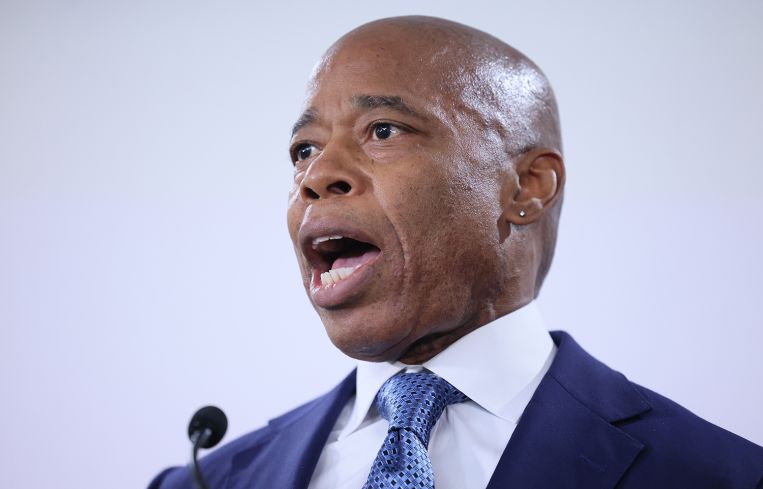Adams’s City of Yes Clears City Council Committees With Some Changes
By Mark Hallum November 21, 2024 5:33 pm
reprints
The proverbial kitchen was a little backed up at City Hall on Thursday as lawmakers were at an impasse for most of the day regarding Mayor Eric Adams‘s plan to eliminate barriers to building more housing. But finally, after hours of delays, the plan cleared two New York City Council committees Thursday night, setting up an expected Dec. 5 vote by the full council.
The revised City of Yes for Housing Opportunity plan, which the City Council’s Land Use Committee and its Subcommittee on Zoning and Franchises both approved, scrapped part of Adams’s proposal that eliminated parking requirements for new developments across the board. Instead, the parking requirement will still stand depending on a project’s location.
The Adams administration — along with some help from Gov. Kathy Hochul — also agreed to provide $5 billion toward the construction of affordable homeownership programs and infrastructure upgrades, concessions necessary to win the council’s support, according to amNewYork.
Of the funds Adams provided, $2 billion will go toward infrastructure projects, with $1 billion slated for housing capital and another $1 billion for various tenant protection measures expected to be spread out over the next decade, Adams said.
Gov. Hochul tapped to provide $1 billion to the Adams administration, effectively bailing out the proposal for the embattled mayor who is facing a five-count federal indictment for bribery. That money will go towards housing capital over the next five years, according to Adams.
“New York has a housing affordability crisis and there’s only one way out: build more housing. That’s why earlier this year, I fought tooth-and-nail for a major package of reforms and investments that will build thousands of new homes for everyday New Yorkers,” Hochul said in a statement. “Now we’re adding a $1 billion state commitment to support affordable housing in New York City. We need all hands on deck to build more housing and make New York more affordable for all of us.”
The finalized proposal also reportedly decreases the number of homes possible for developers to 80,000 units, down from 100,000, which was a major sticking point for outer borough lawmakers facing concerns about overcrowding from constituents.
The new proposal also exempts neighborhoods zoned R1-2A, R2A and R3A, primarily single-family and low-density communities, from being rezoned.
But not all City Council members were happy with the concession.
Councilmember Robert Holden, a conservative Democrat who represents southwestern Queens, called the deal a “blank check” to the real estate industry.
“After three years, the City Council was forced to negotiate with the Mayor’s office in the 11th hour to approve a plan that the majority of community boards and civic associations in this city oppose,” Holden said in a statement. “No matter what this deal offers, it remains a terrible plan that should have been opposed at all costs. Our neighborhoods deserve thoughtful planning that prioritizes infrastructure, affordability, and community input—not a plan that ignores the will of the people.”
Other elected officials found the concessions to more suburban neighborhoods less than ideal, placing the onus on low-income communities in the city to take on a disproportionate amount of new housing.
“City of Yes was never going to fix everything. It was never an affordability strategy, it was never a production plan, and it was never a panacea for our city’s housing crisis,” Brooklyn Borough President Antonio Reynoso said in a statement. “But it was at least a modest opportunity to begin addressing the discriminatory zoning practices that force low-income, Black and brown neighborhoods to do all of the work of building new housing while low-density neighborhoods get away with contributing nothing.”
As for accessory dwelling units, basement and attached apartments will be forbidden in areas with flooding problems or along the coast, nor will they be allowed in historic districts unless the property is near transit, according to the Queens Eagle.
While New York City Council Speaker Adrienne Adams was already catching heat for scaling back parts of the plan, the full City Council was expected to weigh in on the proposal next month, after the city’s Planning Commission reviews the changes.
Update: This story has been updated to show that the plan passed two City Council committees.
Mark Hallum can be reached at mhallum@commercialobserver.com.



